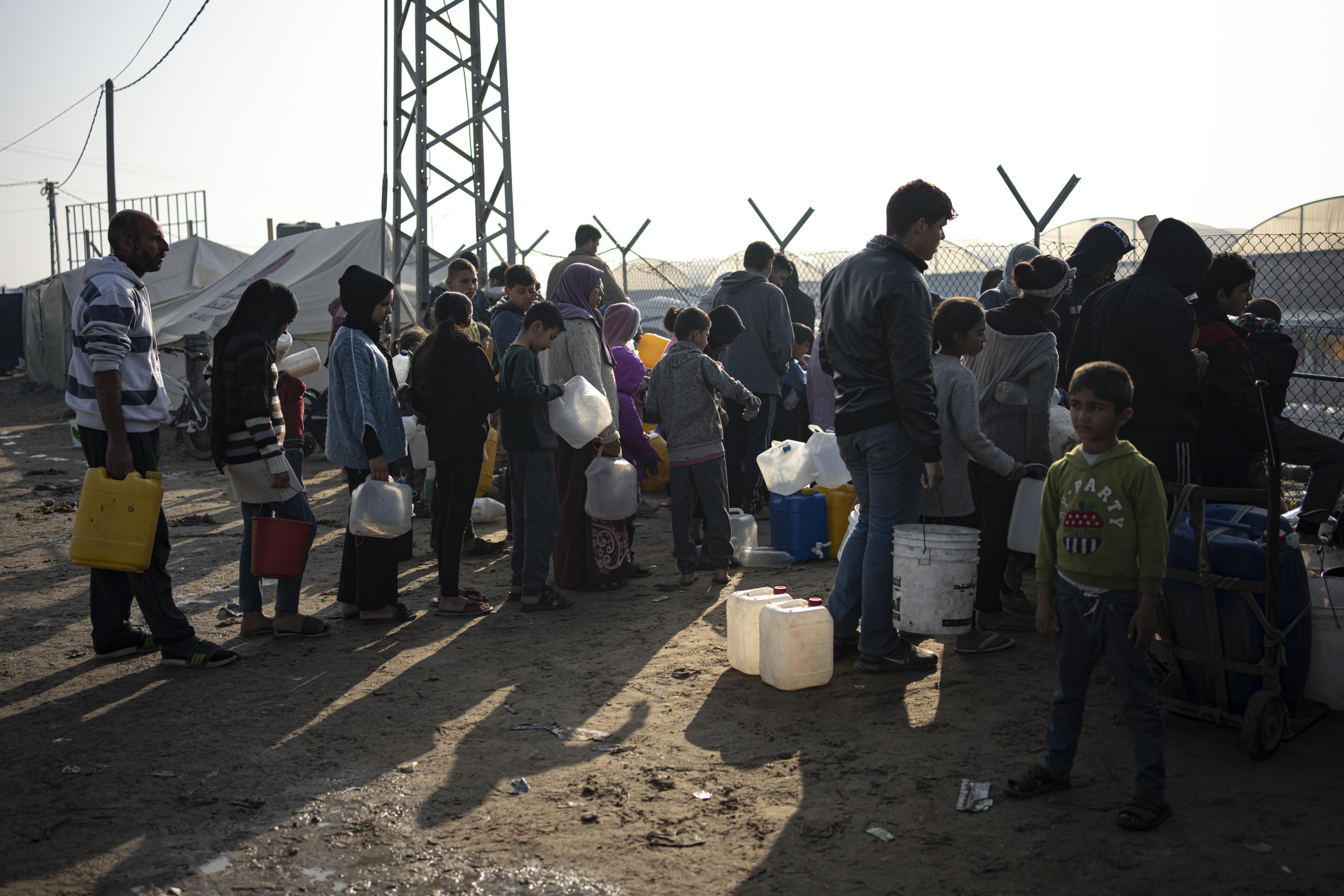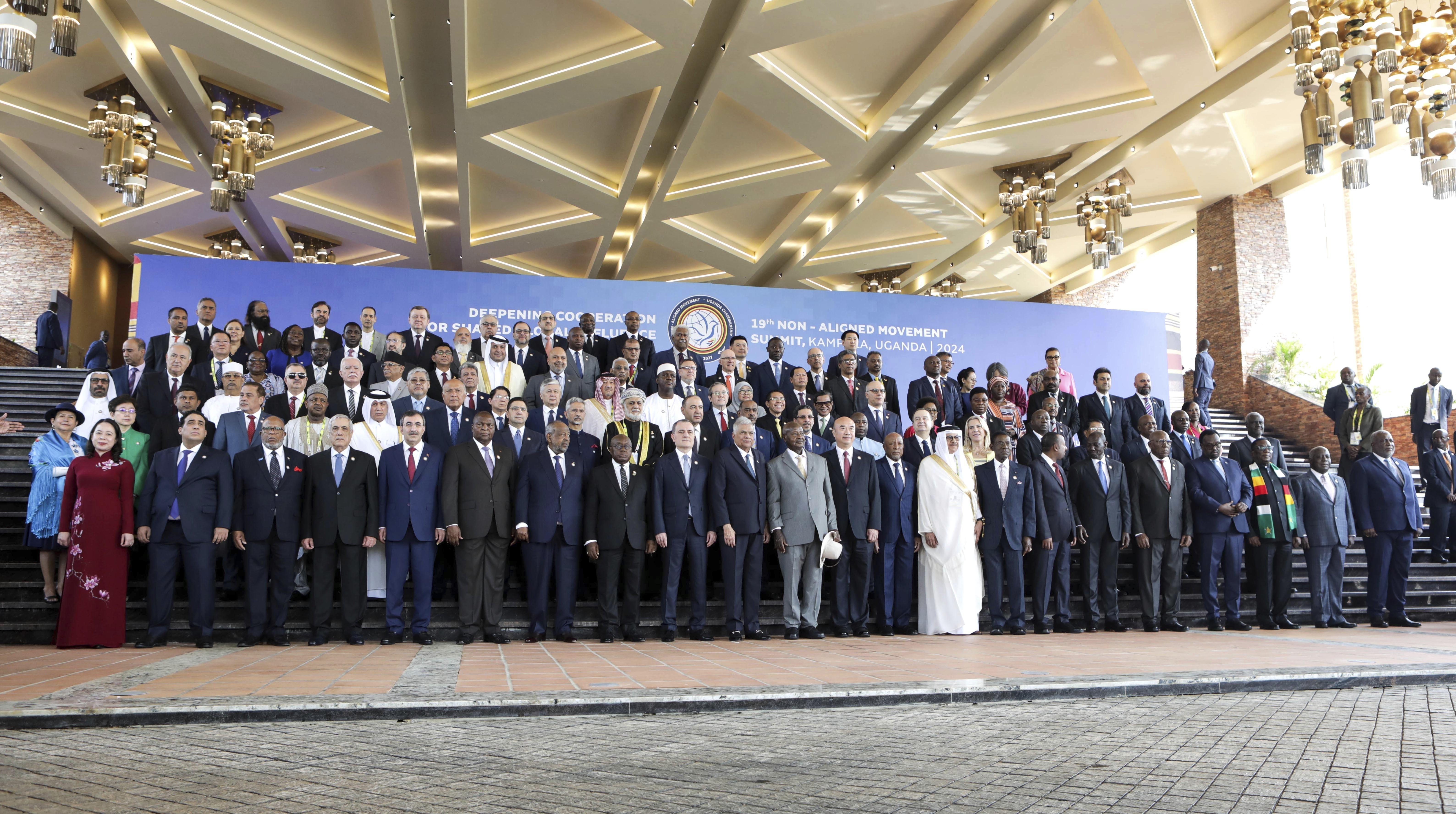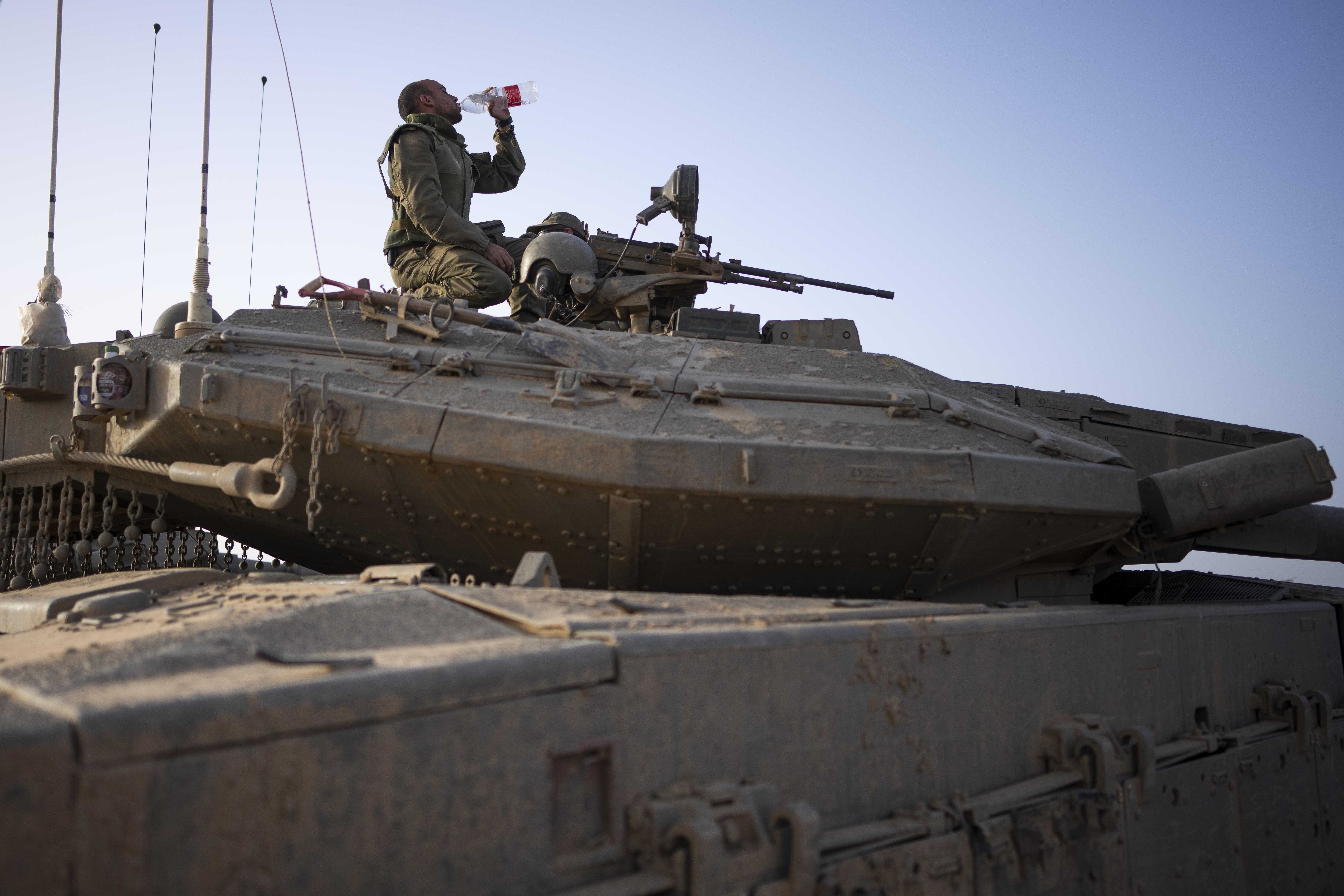 Members of the Abu Jarad family, who were displaced by the Israeli bombardment of the Gaza Strip, queue for water at a makeshift tent camp in the Muwasi area, southern Gaza, Jan 1, 2024. (PHOTO / AP)
Members of the Abu Jarad family, who were displaced by the Israeli bombardment of the Gaza Strip, queue for water at a makeshift tent camp in the Muwasi area, southern Gaza, Jan 1, 2024. (PHOTO / AP)
UNITED NATIONS/MEXICO CITY/KAMPALA – UN humanitarians on Friday warned that the availability of water for drinking and domestic use in Gaza is shrinking each day.
The municipal wells are currently at just a tenth of their production capacity prior to the escalation of hostilities – just over 21,000 cubic meters a day now, down from 255,000 cubic meters a day, the UN Office for the Coordination of Humanitarian Affairs quoted its humanitarian partners as saying.
READ MORE: UN chief calls for ceasefire in Gaza 100 days into conflict
Water from these wells is known to be substandard, given it is brackish. Water from the Israeli-operated lines had been the best source of safe drinking water prior to the hostilities. However, at present, only one of the three Israeli lines, the Bani Said point, is functional, yielding less than half of what would have been available if all lines were working, said OCHA.
Disrupted routine vaccination activities, as well as a lack of medicines for treating communicable diseases, are further raising the risk of diseases spreading
Furthermore, water availability through the short-term desalination plants is currently at just 7 percent of the pre-crisis capacity. Due to import restrictions on critical items, water testing kits and chlorine to treat the water across Gaza are unavailable, it said.
The accumulation of solid and fecal waste, which has been worsened by rains and floods, is also giving rise to severe health and environmental threats.
The World Health Organization is already reporting 152,000 cases of diarrhea – more than half among children under the age of 5 – and the inability to do water chlorination to kill bacteria is aggravating the already concerning situation, said OCHA.
Disrupted routine vaccination activities, as well as a lack of medicines for treating communicable diseases, are further raising the risk of diseases spreading.
Many people who lack access to health facilities may be going undiagnosed, indicating that the situation could be more severe than it appears. Routine surveillance systems are not currently functioning, hampering effective detection, analysis, and response to public health threats, it said.
Meanwhile, Israeli restrictions on the import of critical equipment, including communications devices, are severely compromising safe and effective aid operations anywhere in Gaza, it said.
In the north, the United Nations and partners are trying to increase humanitarian deliveries. But access denials by the Israeli military are preventing a scale-up.
ALSO READ: Gaza spillover-sparks risk igniting wider war
Just seven of 29 planned missions during the first two weeks of January could be fully or partially carried out. All but one of 19 missions planned to deliver medicines and fuel to health facilities and water reservoirs and wells in northern Gaza were denied during the first half of January, said OCHA.
Israel launched its offensive in Gaza after the Islamist militant group Hamas' Oct 7 attack in which Israeli officials say more than 1,200 Israelis and foreigners were killed and 240 taken hostage. The military campaign has killed more than 24,000 Palestinians, according to Gaza health authorities.
 Heads of States and members of the Non-Aligned Movement pose for a photo at Speke resort convention center in Kampala, Uganda, Jan 19, 2024. (PHOTO / AP)
Heads of States and members of the Non-Aligned Movement pose for a photo at Speke resort convention center in Kampala, Uganda, Jan 19, 2024. (PHOTO / AP)
Israel's military campaign denounced
The leaders of Non-Aligned Movement countries on Friday denounced Israel's military campaign in Gaza, demanding an immediate ceasefire there, during the annual summit of the 120-member bloc in Uganda.
"Since Oct 7 we have witnessed one of the cruelest genocidal acts ever to be recorded by history," Cuba's vice president, Salvador Valdes Mesa, said in a speech to delegates.
"How can the Western countries, who claim to be so civilized, justify the murder of women and children in Gaza, the indiscriminate bombings of hospitals and schools and deprivation of access to safe water and food?" he said.
Moussa Faki Mahamat, chairperson of the African Union commission, called for an immediate end to what he called the "unjust war against the Palestinian people."
South African President Cyril Ramaphosa, said the war in Gaza had demonstrated the inadequacy of the United Nations, particularly the Security Council, where the United States has vetoed several resolutions critical of Israel.
"We should establish a system of global governance that is fair and equitable, and has the capacity to respond to the needs of all persons in situations of threat and harm," said Ramaphosa.
 A soldier who just arrived from deployment in the Gaza Strip drinks water at an army staging area in southern Israel, Nov 26, 2023. (PHOTO / AP)
A soldier who just arrived from deployment in the Gaza Strip drinks water at an army staging area in southern Israel, Nov 26, 2023. (PHOTO / AP)
Mexico urges Gaza ceasefire
Mexican President Andres Manuel Lopez Obrador on Friday urged the UN Security Council to press for a ceasefire in the Gaza Strip to resolve the conflict through diplomatic means.
Suggested the UN declare a ceasefire and establish a period of truce between the two sides, Lopez Obrador said a press conference: “Let the diplomats have an opportunity and allow everyone who can help achieve peace take part.”
READ MORE: Mexico, Chile refer Gaza conflict to ICC over potential crimes
"It is not about condemning anyone, but rather finding a way to stop this inhumane, cruel war. That is what Mexico proposes.”
Mexico does not support "the irrationality of war", especially when innocent people have lost their lives in the conflict, he said.
With inputs from Reuters


